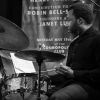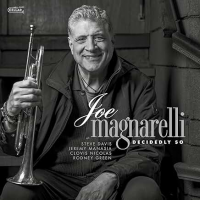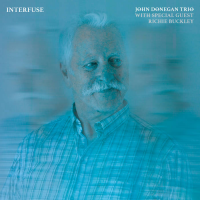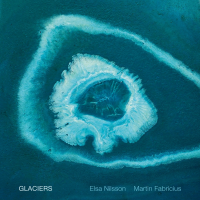Home » Jazz Articles » Album Review » Noah Preminger: Ballads
Noah Preminger: Ballads
Preminger had different aims in mind. He mused in a past interview: "I understand why Trane ended when he ended, because writing chord changes and melodies and blowing on them becomes not fun anymore. There's only a certain point you can get to, a certain point when you can't scream that loud anymore. Trane really, really lived the music, but couldn't do it anymore. He couldn't find where else to go. That's the end. It doesn't go on forever."
Opening the new album with a rarely played Stan Getz, "Stan's Mood," is a challenge. Compare Stan Getz, the supreme ballad player, with Preminger. Preminger is darker and with more edge, more variants. The optimism of 1949 Getz is gone and the digressions in Preminger's solo are severe. The harmony with Julian Shore's piano has a serrated edge.
Preminger chooses his music and his titles with consummate care. There is a knowingness. "Democracy" was recorded on September 18, 2024 during the extremely turbulent presidential political campaign. An open-ended word like "democracy" has resonance and invites listeners to apply their own spin on the word. However, coupling "democracy" with "Unfair World" can have political weight. which is hard to dismiss.
"Someone To Watch Over Me" was written by George Gershwin in 1926. Preminger invests the melody with emotion. The playing evokes the injunction of Lester Young that improvisers should know the lyrics of the melodies. Preminger seems to know them, and his interpretation is close, but not too close to the original. For the early part of the track Preminger is just accompanied by bassist Kim Cass.
Preminger moves away from the safe ballads to the introspective "Carry Me Ohio" by Mark Kozalek (Sun Kil Moon). It is an evocative piece of music, right outside the jazz canon, weighed down with raw regret, reminiscences and nostalgia. Stripped of the lyrics—they are worth reading if you do not know them—their absence places great responsibility on the musicians to recreate the emotional ambiance of the original song. The austere tone of Preminger's tenor achieves that and makes the interpretation a highlight of the whole album. The sound of Preminger is not assertive but rather a type of restrained Paul Gonsalves mode, elusive, not highly colored with that almost squeal at the higher notes to indicate high emotion. Kim Cass and Allan Mednard give the melody a country-rolling flavor that is sensitively appropriate.
The whole album emphasizes Preminger's ability to interpret songs with economy, soul, and superior technique. There is mastery of restraint, trading gaudy techniques for constrained intensity. The deeply satisfying production from Chill Tone Records has produced a beautiful sound that captures the subtlety of the playing.
Track Listing
Stan's Mood; Carry Me Ohio; Unfair World; In Our 20s; Democracy; PNEU; Someone to Watch Over Me.
Personnel
Album information
Title: Ballads | Year Released: 2025 | Record Label: Chill Tone Records
Tags
PREVIOUS / NEXT
Support All About Jazz
 All About Jazz has been a pillar of jazz since 1995, championing it as an art form and, more importantly, supporting the musicians who make it. Our enduring commitment has made "AAJ" one of the most culturally important websites of its kind, read by hundreds of thousands of fans, musicians and industry figures every month.
All About Jazz has been a pillar of jazz since 1995, championing it as an art form and, more importantly, supporting the musicians who make it. Our enduring commitment has made "AAJ" one of the most culturally important websites of its kind, read by hundreds of thousands of fans, musicians and industry figures every month.



























